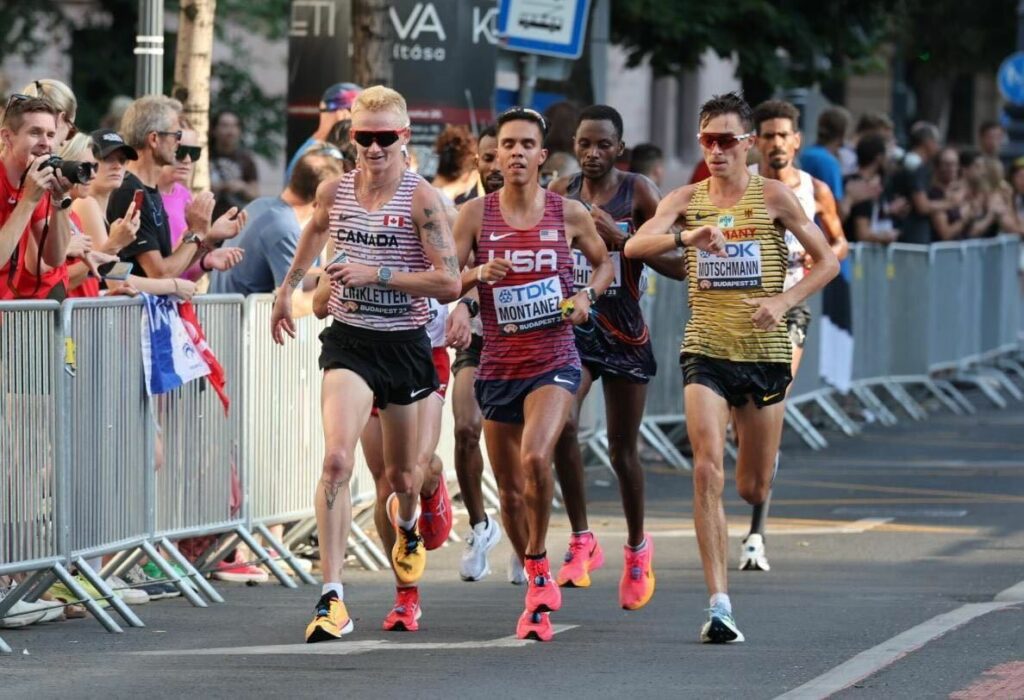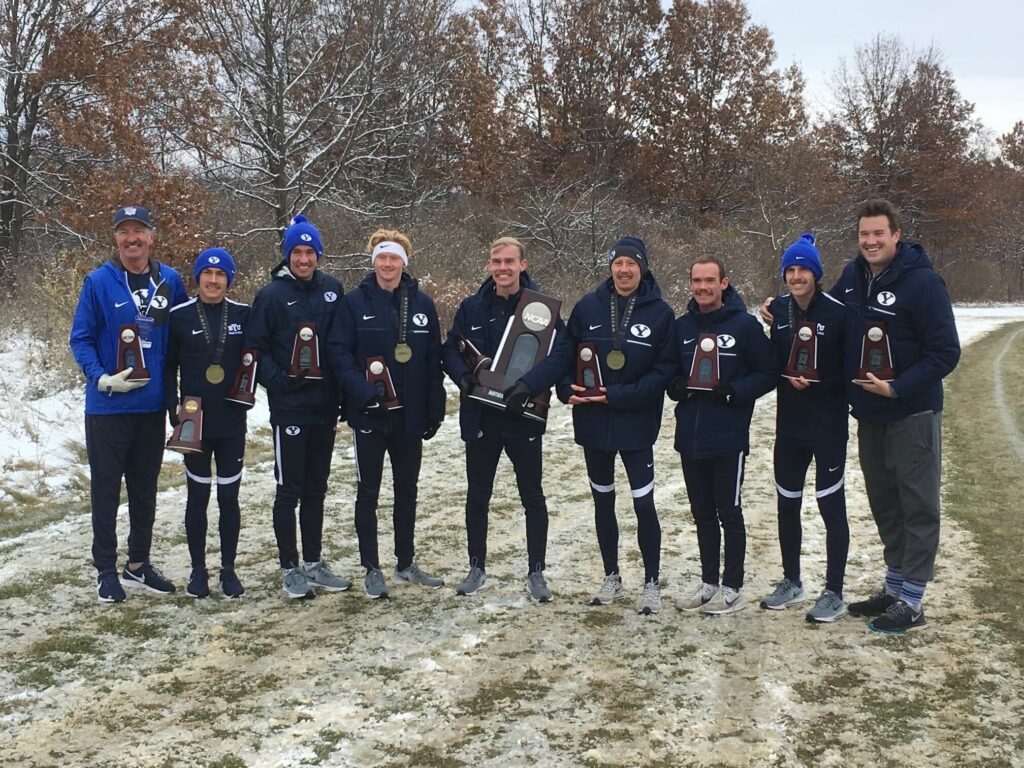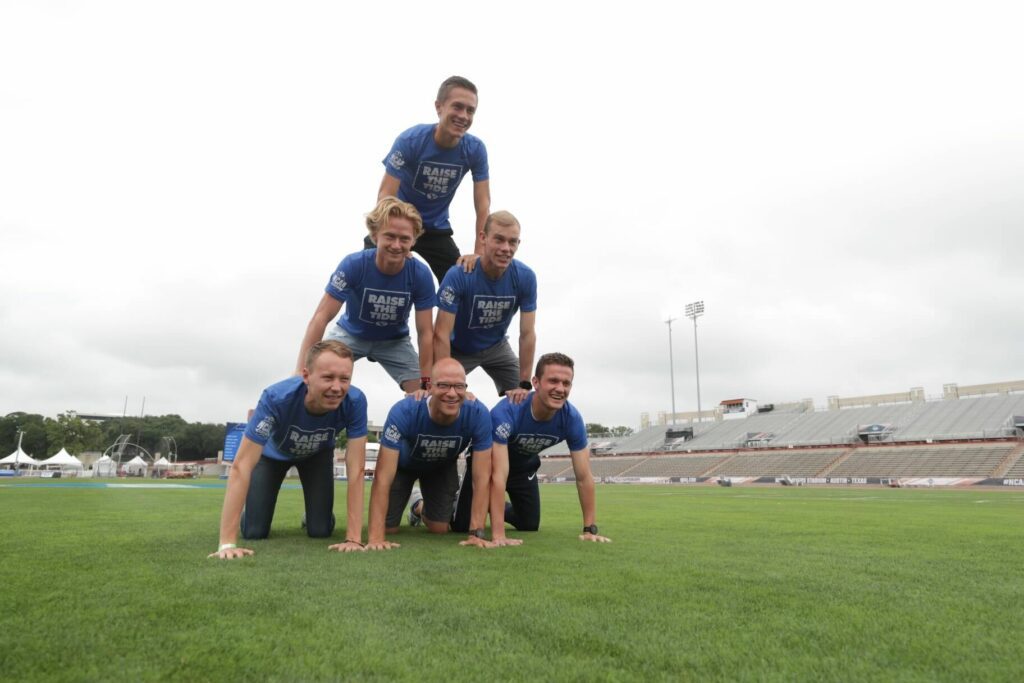Meet the marathon guru behind three of North America’s top runners
[ad_1]
It’s been an exciting start to the year for Brigham Young University (BYU) cross-country and track head coach Ed Eyestone. In February, three athletes who once ran for Eyestone at BYU qualified for the Paris Olympics in the men’s marathon, including Canada’s Rory Linkletter, who hit the Olympic standard at last weekend’s Sevilla Marathon, running a two-minute-plus personal best of 2:08:01.


Eyestone, who coached Linkletter for five years at BYU before Linkletter turned pro (he is now coached by former U.S. marathoner Ryan Hall), knew he was ready for a breakout performance after watching Linkletter execute a top-20 finish in the marathon at the 2023 World Championships in Budapest. “I was super excited for him, and told him he was next, after the U.S. marathon trials,” says Eyestone. “To see him execute on race day, and run a fast time, I was proud of him.”
“It turns out that the group of 10K runners we had in 2018 was special,” laughs Eyestone. Linkletter ran for BYU in Provo, Utah, from 2015 to 2019, and just happened to be a part of a special group of young runners who would turn out to be three of North America’s top marathoners. U.S. Olympic Marathon Trials champion Conner Mantz and second-place finisher Clayton Young also ran at BYU during this time; they helped lead the Cougars XC team to three top-three finishes and an NCAA championship title in 2019.
“Looking back on that 2018 team, we were second and now have three men who’ve run faster than 2:08:10… if only the NCAA’s was 26.2 miles,” Eyestone laughs.


“Every high school athlete we recruit has aspirations of running professionally or being an Olympian one day,” he says. “I know with Mantz, he was heavily recruited out of high school, and he wanted to go to a school that would one day prepare him for the marathon.”
Eyestone’s coaching philosophy for developing long-distance athletes is not rocket science. He believes in long-term progression, so his athletes aren’t maxing out in college, and are leaving the window open for higher mileage post-collegiately. “I’ll have my 5,000m and 10,000m guys run around 80 miles a week, with a long run of 90 minutes,” he says. Eyestone has continued to coach Mantz and Young at the professional level, and still swears by not having them do much over two-hour long runs. “We have a great program at BYU, and it’s not unusual for Mantz and Young to hop in and work out with the college kids.”
BYU is an altitude school, standing at 1,400 metres above sea level, and has a large recruiting pool and an extensive following, with its affiliation with the Church of Jesus Christ of Latter-day Saints.
When Eyestone arrived as a coach at BYU in 2000, his goal was to build a culture to become a powerhouse program in the NCAA. “We wanted to recruit guys who wanted to challenge for an NCAA XC podium spot every year,” he says. “It all starts at the beginning of the year, with the team’s veterans setting the tone and getting younger athletes and recruits to buy in.”


Despite Linkletter choosing to part ways with Eyestone as his coach in 2019, the two remain close friends and share a level of respect for one another. “Rory is an incredible leader; he was our team captain,” says Eyestone. “He would always hold the team accountable for showing up on time and developing a healthy routine […] I remember he called it Ferrari fuel.”
Eyestone’s favourite thing about being a coach is being able to see the ripple effect of a good performance or win on an athlete’s family and personal life. “My son-in-law told me on Sunday after Rory’s race that four percent of the athletes in the men’s marathon in Paris will be former BYU runners,” Eyestone revealed. “I couldn’t be more proud of them.”
[ad_2]


![[Targeted] Amazon: Get 50% Off When Using 1 Membership Rewards Point (Up To $80 In Discounts) [Targeted] Amazon: Get 50% Off When Using 1 Membership Rewards Point (Up To $80 In Discounts)](https://i2.wp.com/www.doctorofcredit.com/wp-content/uploads/2020/06/amazon-image-e1593111294983.png?w=520&resize=520,292&ssl=1)














